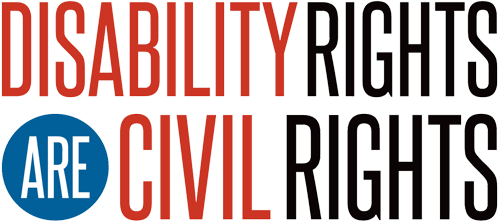 In the process of actively advocating with DC law makers and connecting with dedicated individuals and organizations working diligently for children and youth with disabilities and the families responsible for their care, the most important lesson is the power of coordination and organization. There’s a lot of housekeeping to be done within our coalition, of which post-Memorial Day weekend, we will actively begin engaging our membership to establish a more democratic process and division of labor, so stay tuned for upcoming meetings and gatherings both online and in person geared at engaging our membership.
In the process of actively advocating with DC law makers and connecting with dedicated individuals and organizations working diligently for children and youth with disabilities and the families responsible for their care, the most important lesson is the power of coordination and organization. There’s a lot of housekeeping to be done within our coalition, of which post-Memorial Day weekend, we will actively begin engaging our membership to establish a more democratic process and division of labor, so stay tuned for upcoming meetings and gatherings both online and in person geared at engaging our membership.
We are lucky to be part of such an active and well-informed network and look forward to active collaborations with families, self-advocates, advocacy organizations, researchers, lawyers, doctors, government agencies and law makers. It truly is take a village to raise a child and we look forward to being productive members of our community in this great city of Washington, DC and to deliver tangible results for the children and youth directly impacted by the effectiveness of our organizing and collaborative efforts.
As we get our house in order as a coalition, we are also exploring collaborations with the Georgetown University Center for Excellence in Developmental Disabilities, the University Legal Services for the District of Columbia, DC Councilmember Charles Allen’s team (Chair of the Judiciary Committee) and the District’s Deputy Mayor of Public Safety and Justice. The goal is to engage in a Public Safety Awareness Campaign to empower families with children with disabilities with fact-based information about opportunities to improve relations with our families and local law enforcement agencies.
The Coalition’s main function is to ensure that the District public school systems are meeting all requirements for public awareness, child find and to provide free appropriate public education (FAPE), as protected by the Individuals with Disabilities Act (IDEA amended in 2004, the Rehabilitation Act of 1973 and several other local laws.
A recent report issued by the University Legal Services of DC recently published a report entitled “Restraint, Seclusion and Abuse in District of Columbia Public Schools and the Need for Accountability”. This report highlights the troubling trend within public and public charter schools to utilize questionable practices that range from being mildly to grossly unethical methods to address incidents involving children with disabilities. This report highlights a key aspect of how the preschool to prison pipeline works, with our most vulnerable children with disabilities being targets of dysfunctional school public safety practices. Yet, such issues are not isolated to the school environment.
A key part of the advocacy work is also geared to increase parent engagement to improve on educational outcomes. To do so effectively, a main goal is to provide other community support to assist with improving the quality of life for the families in variety of social areas and to equip families with community resources that address some of their greatest needs concerning care of a loved one with a disability. In terms of public safety concerns, there are a range of issues facing families, especially those with a loved one with a developmental disability such as autism or a psychiatric disability such as schizophrenia at the schools or other public places as well as at home.
In a 2016 report by the Ruderman Family Foundation, it notes that individuals with disabilities make up one-third and one-half of all people killed by law enforcement officers and are the majority of people killed in use-of-force cases where officers are either found to be at fault or are exonerated. One of the key findings of this report is that the establishment of crisis intervention trainings (CIT) at local police departments alone does not lead to positive outcomes.
Having frequent and consistent person-centered cultural awareness training with the public safety sector are more proven methods of improving community relations with government services across a range of sectors including law enforcement.
To join in the planning for this campaign to host a series of trianings touching on a variety of aspects of disabilities awareness to promote greater public safety awareness, drop a line and let us know how you’d like to contribute to these efforts.
